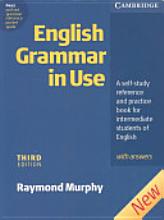Native English speakers aren’t expected to achieve IELTS 7 or better just to be allowed to live, study or work in their home country
– unlike most IELTS Academic students who want to live in those same countries. Perhaps this is just as well because English grammar can be very challenging, even for native English speakers and the fact that English is your mother tongue doesn’t mean you automatically have a good grasp of English grammar.
So how does a native English person learn grammar?
With the exception of formal teaching at school, the native English speaker learns from many sources during the course of their life, including their mother, father, family, friends and acquaintances. Learning from reading , writing, listening and speaking continues throughout the whole of life.
How, then, should a non-native English speaker learn grammar?
The difference between learning a language as a native speaker and learning as an IELTS student is time. IELTS Exam candidates are required to demonstrate a level of competence in a very short period, compared to a lifetime of learning. This changes the emphasis on how best to learn and the effectiveness of that learning process. The time available demands a structured approach to the learning of English grammar and this is provided in the supporting lessons for IELTS. The classroom teaching needs reinforcing to ensure high band scores at the IELTS Test. Different people learn at different rates and in different ways to each other. What works for some does not work for others. So a variety of methods is available for improving English grammar.
Here are 5 ways:
- Establishing a grammar “Mastermind” group with fellow students or others for the mutual improvement of English language with tasks and targets to achieve. A technique often used for developing businesses, Napoleon Hill, author of the book Think and Grow Rich, first defined the concept of the “master mind” as a “coordination of knowledge and effort, in a spirit of harmony, between two or more people, for the attainment of a definite purpose.” For English learning the common purpose is reaching a high level of English competence. In a Grammar Mastermind, the benefit results from students of English having different skill levels in all aspects of English language: holding each other to account and supporting, advising and correcting each other, helping each other to expand vocabulary and developing a good understanding of English grammar. Integrating a mastermind group’s activities with a study plan produces a highly focussed preparation for the IELTS Test.
- Reading English language written material, exposing yourself to different structures, tones and ideas. Whilst not everything that is printed is perfect, all of the books and magazines available for sale are likely to have been proof-read and edited by English language specialists. Questioning what makes a piece, passage or article good is an excellent way of learning. The more you read the more you will develop your vocabulary and your own intuitive feel for what “looks” or “sounds” wrong to you. Noticing, also, the different styles associated with different genres. Seeing how the grammar and language changes with the intended audience. For example, comparing “The Spectator” magazine articles with those of “Reader’s Digest” and “The Guardian” newspaper with “The Daily Mirror”.
- Listening to talk radio, podcasts and audio books. Audio books, particularly, are an opportunity to hear spoken language and use of grammar (and also to read those same words if you have the texts). You will learn how to pronounce new words and also hear the complex sentence structures inflected. Many of the classic books in the English word have been turned into audiobooks and are available for free download at Project Gutenberg, Click Here for more information. Listening to Podcasts is very valuable because:
- they provide exposure to different accents
- are usually between 10 and 30 minutes long, so don’t take up too much time
- they are mobile media and allow you to “time-shift” your learning by playing them on your MP3 player at a time to suit you.
- they are ideal for making use of otherwise “dead” learning time, e.g. when stuck in traffic, when commuting to and from work or college, at the supermarket when grocery shopping or when cycling.
- Often, podcasts involve two speakers having a conversation about a particular subject.
- Podcasts are also great for developing vocabulary and grammar in the IELTS topics. Just choose a podcast which suits the topic you would like to know more about.
- Using Grammar Girl’s Podcasts and Quick and Dirty Tips Book. About a year ago I discovered Mignon Fogarty – Grammar Girl – and her Grammar Tips podcast. I gave a couple of them a trial listen – and liked them so much I downloaded every single one I could! (Click Here if you would like to do the same) Now I dip into the Grammar Girl podcasts whenever I want to refresh my thinking on how to explain various grammatical points to others. For students, though, it would be very easy to become overwhelmed by the sheer number of podcasts available.
 Mignon Fogarty has written books to help students of English. One which is very popular is called Grammar Girl’s Quick and Dirty Tips for Better Writing. If you like the podcasts you will enjoy the book as it is written in the same manner, full of wit and warmth. The book contains memory tricks and clear explanations which helps users recall and apply those troublesome grammar rules. Mignon has also written a book purely about Grammar, called [easyazon-link asin=”B004K0VKZK”]The Grammar Devotional[/easyazon-link]. This book is written in tip of the day form and contains 365 lessons on language that help students become more polished and proficient at grammar. It is packed with bite-size writing tips, fun quizzes, puzzles, and efficient memory tricks. Just the sort of thing to help students of English understand and retain the grammar learned.
Mignon Fogarty has written books to help students of English. One which is very popular is called Grammar Girl’s Quick and Dirty Tips for Better Writing. If you like the podcasts you will enjoy the book as it is written in the same manner, full of wit and warmth. The book contains memory tricks and clear explanations which helps users recall and apply those troublesome grammar rules. Mignon has also written a book purely about Grammar, called [easyazon-link asin=”B004K0VKZK”]The Grammar Devotional[/easyazon-link]. This book is written in tip of the day form and contains 365 lessons on language that help students become more polished and proficient at grammar. It is packed with bite-size writing tips, fun quizzes, puzzles, and efficient memory tricks. Just the sort of thing to help students of English understand and retain the grammar learned.
Good and enjoyable though the books by Mignon Fogarty are they were not really written with the teaching of English as a foreign language in mind. This should make little difference to the majority of higher band IELTS Test students but some will feel more comfortable with learning resources which were developed with this in mind. A number of textbooks designed for this purpose have been written, but one stands head and shoulders above the rest when the views of

Teachers and students are taken into account; [easyazon-link asin=”0521537622″]English Grammar In Use with Answers and CD ROM[/easyazon-link].
- Murphy’s English Grammar In Use (with answers and CD ROM) is a self-study reference and practice book for intermediate students of English.
 Originally published in 2000 it has received plaudits and praise from both teachers and students ever since. The book is now at edition 3 and has been updated significantly since original publication. If you are considering the purchase of resources to help you with your IELTS Test grammar preparation then this would be an excellent candidate. Don’t just take my word for it, though, take a while to read the reviews left by EFL students and teachers before making your decision.
Originally published in 2000 it has received plaudits and praise from both teachers and students ever since. The book is now at edition 3 and has been updated significantly since original publication. If you are considering the purchase of resources to help you with your IELTS Test grammar preparation then this would be an excellent candidate. Don’t just take my word for it, though, take a while to read the reviews left by EFL students and teachers before making your decision.
Whether you use Grammar Girl, Murphy, some or all of the steps outlined in this post is entirely up to you. English grammar is something that needs to be worked at if it is to become second nature in usage. Couple these tips with the lessons you are taking in support of your IELTS accreditation and embed them in your study plan.


Leave a Reply